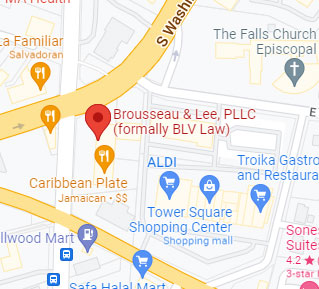 One exception to the joint filing requirement is for those who have been “battered or subjected to extreme cruelty.” The waiver of the joint filing requirement in this category requires showing that the qualifying marriage was entered into in good faith, but that during the marriage, the conditional resident or their child was battered or subjected to extreme cruelty.
One exception to the joint filing requirement is for those who have been “battered or subjected to extreme cruelty.” The waiver of the joint filing requirement in this category requires showing that the qualifying marriage was entered into in good faith, but that during the marriage, the conditional resident or their child was battered or subjected to extreme cruelty.
When There Is Physical Abuse
The regulations explain that the phrase “was battered by or was the subject of extreme cruelty” includes but is not limited to being the victim of:
- An act or threat of violence
- An act or threat of forceful detention
- An act or threat that results in physical or mental injury
- Psychological abuse
- Sexual abuse or exploitation
- And more…
This statutory list is of egregious acts of physical abuse. However, it is not exhaustive; the USCIS will also consider lesser acts of physical abuse or cruelty against a spouse or child. If a client of mine believes they might qualify under this exception, I prefer to file under this waiver category instead of the good faith marriage exception.
Filing under the good faith waiver in this situation would be counterintuitive since the extreme cruelty exception also requires you to show that the marriage was entered in good faith.
However, if you want to pursue both or if you decide the battered spouse waiver is better suited for you, then you’ll need to provide sufficient evidence of this abuse.
You can provide evidence by seeking counseling on your own right to get records that will document the abuse or the diagnosis that would arise from that abuse. I would argue that those records would be enough to show that you were battered or subjected to extreme cruelty.
Nonphysical Controlling Actions
Nonphysical actions will be considered to rise to the level of extreme cruelty when they are “tactics of control” intertwined with the threat of harm to maintain the perpetrator’s dominance through fear.
Nonphysical actions that are “mere unkindness” do not rise to the level of extreme cruelty. For example, USCIS has stated that marital tensions, incompatibilities, and other outside sources that put severe strains on marriage do not constitute the extreme cruelty envisioned by the law.
Who Qualifies For The Battered Spouse Exception
A conditional resident may apply for a waiver in this category regardless of their present marital state. This means that to qualify for the Battered Spouse visa, a conditional resident may still be residing with the citizen or permanent resident spouse or may be divorced or separated.
For this reason, a conditional resident who is surviving abuse or hardship should consider the battered spouse waiver to their advantage since they will not need to rush to start or conclude divorce proceedings.
Additionally, a conditional resident may apply for this waiver based on abuse to their child – regardless of a child’s citizenship or immigration status. A child may also apply for the waiver themselves, based on abuse that they’ve experienced.
The law is unclear about whether a child who needs to file a waiver application is eligible to seek the waiver based only on abuse to their parent. However, a child witnessing abuse to their parent may in and of itself constitute extreme cruelty within the statute’s meaning.
Proving Good Faith Under The Battered Spouse Waiver
The standard used by USCIS to determine if the marriage was in good faith is the same as when adjudicating the initial marriage-based petition: The conditional resident must show that they entered the marriage to build a life with their spouse.
As with other waivers, conditional residents who file in this category may want to explain what led to the marriage’s breakdown. This may overlap with proof of the abuse for abused spouses and children, as the abuse is likely to have contributed to the marriage breakdown.
How To Support A Claim Of Physical Abuse
USCIS regulations state that a conditional resident may support a claim of physical abuse by submitting expert testimony in the form of reports and affidavits from police, judges, medical personnel, school officials, and social service agency personnel.
Extra documentation could include the following:
- Police reports.
- Restraining orders or other court documents indicating the conditional resident has sought judicial protection from the batterer at any point during the marriage or after separation or divorce.
- Medical records showing that treatment was sought after an abusive incident such as:
- Hospital & emergency room records,
- Letters from doctors,
- Medical bills,
- Etc.
- Photographs showing physical evidence of the abuse, such as:
- Injuries to the body,
- Torn clothes,
- Broken furniture,
- Etc.
- Records from social service agencies who intervened in, suspected, or received allegations of abuse.
- School records for any child who showed documented signs of abuse or received treatment for psychological or physical trauma.
- Affidavits or letters from counselors or clergy
- Staff at women’s shelters who may have been approached for help by the conditional resident or their child.
- Affidavits from neighbors who might have seen or heard episodes of abuse.
- Affidavits of other persons who may have secondary knowledge of the abuse.
- And more…
Getting Credible Evidence
Generally, the USCIS will consider copies of court, police, and medical records as more credible than affidavits of neighbors or friends. But what if the conditional resident does not have corroborating evidence from a licensed professional? In that case, they may submit any other form of credible evidence.
Initial regulations for this waiver stated that the conditional resident applying could only document the abuse with evidence from licensed clinical social workers, psychologists, and professionals. But in 1994, Congress amended the statute to allow conditional residents to submit other kinds of credible evidence supporting the waiver.
Still, Congress left it up to the agency’s discretion to determine what evidence is credible. Though the agency has never amended the regulations, it does follow the statutory change. So, it will typically accept any credible evidence that supports a claim of extreme cruelty.
With the guidance of a skilled attorney for Immigration Cases In Virginia, you can have the peace of mind that comes with knowing that we’ll make it look easy.
For more information on Documenting Abuse For Your immigration Waiver, an initial consultation is your next best step. Get the information and legal answers you seek by calling (703) 249-9055.

Call Now To Schedule A Consultation (703) 249-9055
